Change can be scary. Knowing what to expect in advance can provide stability and assurance. From navigating the transition, to overcoming challenges, to the profound emotional positives, this guide will help you know what to expect emotionally when going vegan.
If you’re reading this article, chances are you’ve either decided to go vegan or are considering going vegan. Change can be scary, so knowing what to expect in advance can provide some stability and assurance. I want to be clear that no two vegan journeys are the same, so some of what I cover may not apply to you.
Also, I want to note that while we will be addressing some of the emotional challenges you may face, there is a profoundly powerful emotional upside to going vegan that we’ll get to at the end. So be sure to stick around for the pay off.
Before we dive in on what to expect when going vegan, I wanted to let you know that I also have you covered on how to go vegan! I have a completely free “How to Go Vegan” guide to get you going on your vegan journey. You can also download the guide as a free eBook when you sign up for the Bite Size Vegan newsletter.
Expect a Period of Transition
Any life change can produce strong emotions, and going vegan is no exception. On the purely dietary side of things, you may experience some withdrawal-type symptoms or even “grieve the loss” of your favorite dishes.
Food is deeply tied to our emotional memory and our cultural and familial traditions. The good news is that you can “veganize” all of your favorite dishes! Even if you’re not much of a chef, the list of vegan ready-made alternatives continues to grow and increase in availability.
If you’re in an area or circumstances where you struggle to find or afford vegan options—and especially fresh produce—please see the Eating Vegan on a Budget & Addressing Issues of Access section of the How to Go Vegan guide.
On a more profound level, you may experience some emotional upheaval when coming to terms with what you’ve been supporting your whole life. It’s natural to become overwhelmed as you start to come face-to-face with the horrors of the animal products industry—the brutalization of sentient beings, the destruction of the environment, the health impact upon yourself, friends, and family, and the diversion of global food and water resources.1 It’s a lot to take in, to say the least.
You’re likely to experience a range of emotional ups and downs throughout your vegan journey, but especially during this time of transition. It’s important to be patient with the process and with yourself.
Expect Increased Awareness

In many ways, going vegan is like having blinders removed. For some people it happens in an instant; for others, it’s a more gradual process. This increased awareness can result in a range of strong emotions. It can be exciting, infuriating, illuminating, heartbreaking, motivating, even traumatic—sometimes all at once.
It can be extremely painful to suddenly become aware of the suffering all around you—in every glass of milk, cut of meat, and carton of eggs. To no longer see these as food items, but rather products of exploitation.
This is not by any means limited to awareness of what non-human animals are subjected to. Perhaps you’ve become aware of the adverse health impact of animal products and the lack of nutrition education physicians receive. If you or a family member experience chronic health problems that could benefit from dietary change, this awareness could be infuriating.
Perhaps you are passionate about the environment, but relied on the information provided by top environmental protection organizations, which consistently fail to address the environmental devastation of animal agriculture.
Perhaps you’re passionate about human rights and social issues, and have become aware of how much food, water and resources are diverted to animal agriculture; or the extreme threats to public health from disease outbreaks and the contamination of our food, air, and water.
The more you learn about the far-reaching consequences of our collective use of animals, the more overwhelmed you may become. For some people, this may lead to feelings of hopelessness. Others may be inspired and motivated into action, wanting to share with others their new-found knowledge. Your experience will be your own, and will evolve over time.
I for one would not for a second trade the pain of awareness for the comfort of denial. Yes, there is bliss in ignorance—for the ignorant.
While the emotional turmoil and overwhelm that increased awareness can bring may sound like a deterrent to going vegan, don’t be dissuaded quite yet. While denial does function as a protective measure, remember that there is a profound emotional upside to living vegan.
Before we get to the payoff, we need to address one of the more emotionally daunting aspects of going vegan: navigating social situations. Stick with me, though—I promise you it’s worth it.
Expect Some Social Challenges

Navigating social situations is a common concern for new vegans and those considering going vegan. How do you deal with food at social functions? How do you field questions and objections? How do you share what you’ve learned with others?
As we’ve discussed, as a brand new vegan, your emotions are likely to be in flux and can be intense at. Perhaps now that your your eyes are wide-open, you can’t understand why everyone isn’t having the same earth-shattering revelations.
Perhaps your attempts to share your findings with non-vegans come out as unbridled overzealousness, militant anger, incomprehensible sadness and crying fits, or some other bizarre attempt at expressing the astounding new realities you’ve awakened to.
It’s important not to be hard on yourself—these communication challenges are something every vegan experiences.
Going out to eat or attending social functions involving food may also be a source of concern. What if there’s not something for you to eat? What if others judge you for your dietary choices? There are many ways to handle these situations, from looking at the restaurant menu ahead of time, to eating beforehand and just socializing at the event, to bringing vegan options to share.
You may also struggle being around people eating animals. It can be profoundly challenging to watch your friends, family, and loved ones continue to participate in what you now see as the enslavement, torture, and murder of innocent beings, the decimation of our planet, and the potential damaging of their own health.
Some vegans choose to remove themselves entirely from these situations, while others focus the conversation on their family and friends, and avoid discussions about food. It’s up to you to determine what you’re comfortable with.
Stay grounded in the knowledge that you’ve made one of the most profoundly impactful decisions one can ever make. You have nothing to explain nor apologize for.
Over time, you’ll become more confident in navigating these situations and discussions. I have additional resources that can help guide you further with:
- effective communication with friends and family,
- effective communication with non-vegans in general,
- navigating social situations, and
- dealing with non-vegan friends and family.
Expect Social Support (If You Want It)

Many new vegans find it helpful to connect with other vegans. It can be a great relief to talk to people who have been where you’re at, faced similar challenges in the transition, and found their way through. While everyone’s journey is different, there are many aspects of being vegan with which almost all vegans can identify.
I truly believe that one of the hardest parts of going vegan is living in a non-vegan world. When almost everyone and everything around you continues to normalize the use and consumption of animals, it can be distressing, and maybe even make you question your decision.
It’s important to know that you are not alone. Finding community with other vegans can be a lifeline. There are countless ways to connect with other vegans, and countless kinds of vegans with whom to connect. Veganism is no respecter of race, religion, socio-economic status, or culture.
Some places to start if you’re wanting to connect with other vegans are: sites like Meetup.com where you can find or start a local vegan group; online communities on platforms like Facebook, Reddit or Nextdoor.com; and websites like VegEvents.com, which lists vegan events. (Important note: these online platform suggestions are not official endorsements. Please use with care.)
You can also check your area for farmed animal sanctuaries and vegan restaurants—places where you’re likely to spot some vegans in their natural habitat.
And hey, if you’re not a social butterfly by nature, there’s no obligation to become a vegan social butterfly–just know it’s an option.
Expect the Peace of Living Your Values

We’ve finally made it to the emotional payoff I’ve promised. While we’ve covered sources of turmoil and strife, there is an incredible emotional upside to going vegan that outweighs all of it.
One of the most exciting things you can expect from going vegan is to finally be living in line with your values. When we live in a way that conflicts with our values, it takes a toll—whether we’re aware of it or not.
I think it’s safe to say that most people love animals, but continue to consume and exploit them. We must maintain a severe disconnect deep within ourselves in order to be able to love our cats and dogs while we pay others to enslave, torture and kill pigs, cows, and chickens for us.
When you go vegan, you can go to sleep every night knowing that no one had to die for your meal. That no blood was shed on your account. That you’ve made the most impactful, incredible decision of your life.
That is what you can expect.
tweet this—Emily Moran Barwick
The same is true of environmentalism. Many people want to be environmentally-conscious. They recycle, take shorter showers, even drive hybrid cars. But nothing makes nearly as large of an impact on the planet than what we eat.
We all want to think of ourselves as good people. But when we are contributing to the murder of innocent beings, the destruction of the planet, the diversion of food and resources, and the endangerment of our society’s health as a whole, we have to do some pretty intense mental gymnastics to preserve this concept of ourselves.
When you go vegan, you’ll have peace of mind knowing that you’re finally living your values. You can go to sleep every night knowing that no one had to die for your meal. That no blood was shed on your account. That you’ve made the most impactful, incredible decision of your life.
That is what you can expect.
In Closing…
I hope that this article has been helpful. Now that you know more of what to expect when going vegan, remember to check out the “How to Go Vegan” guide for how to do it!
I’d love to hear about your emotional experiences when going vegan, or your concerns if you’re not vegan yet. Let me know in the comments!
To stay in the loop about new Bite Size Vegan content and updates, please subscribe or follow the Telegram channel for the most reliable notifications. To support content like this, please see the support page. Now go live vegan, and I’ll see you soon.
— Emily Moran Barwick
Get Started


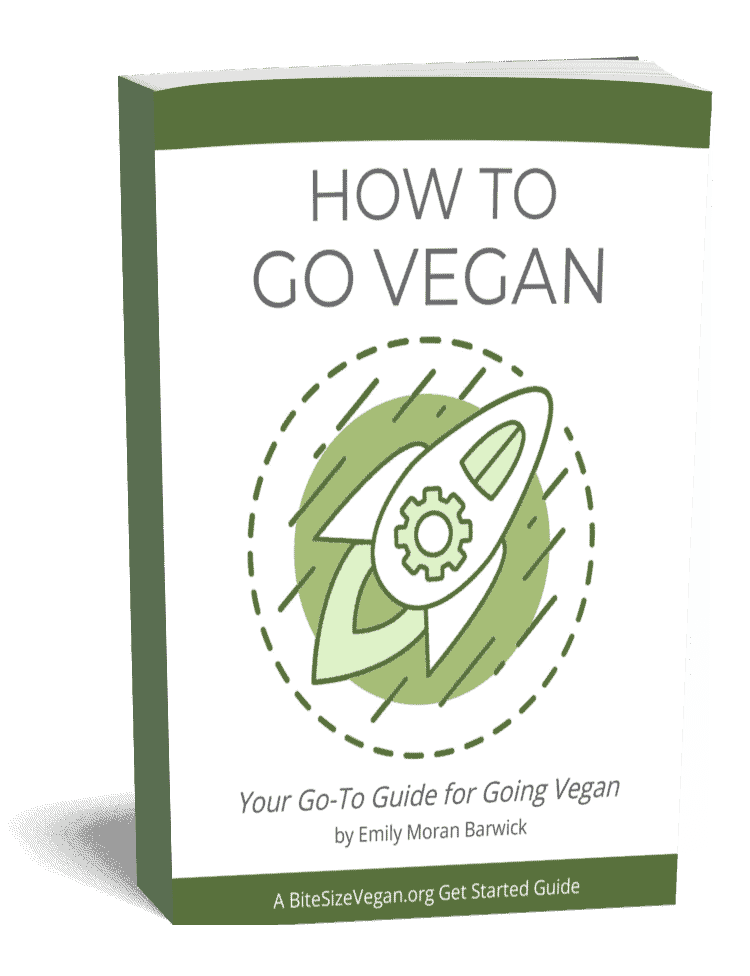
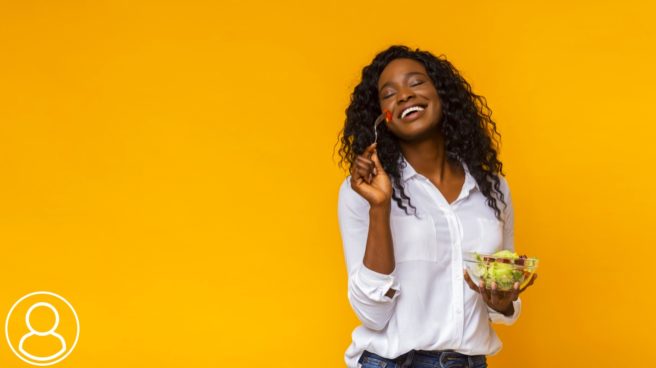
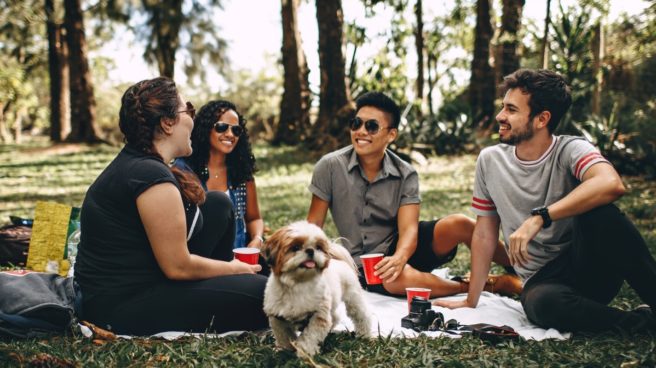
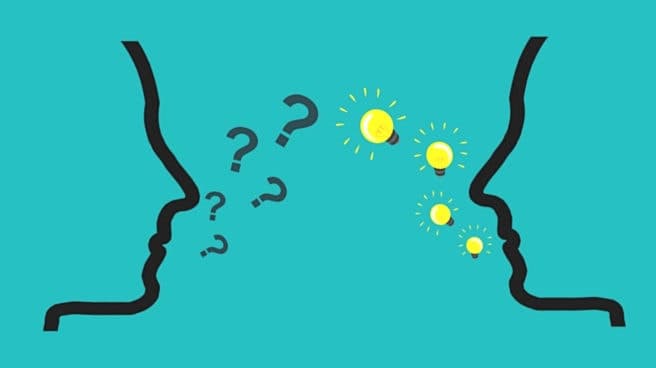
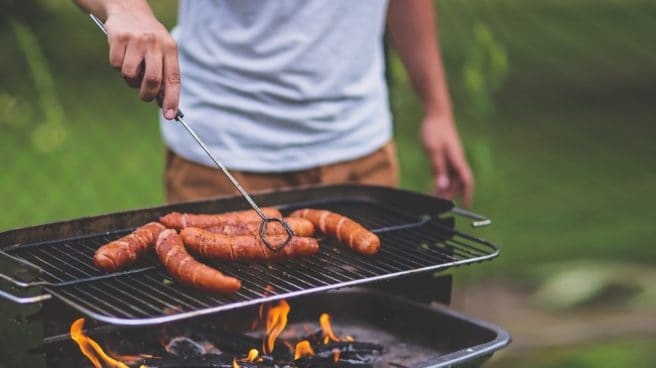
Thank you again, Emily for your kind help. The emotional aspect has been a roller coaster. Being aware of things I cannot unsee feels liberating and right, but the world feels (even more) surreal: normalized speciesism is EVERYWHERE and takes so many deeply entrenched forms.
You are so very welcome! I’m honored to hear this was helpful. And I totally identify with what you’ve said. Speciesism is so ingrained within our global society. Thank you for taking the time to comment!
For me CHEESE and DAIRY were always a downfall in maintaining a vegan, completely plant-based diet. Now that I’ve been a vegan for a while now, I have learned to substitute these cravings with plant-based alternatives (the same with beef, pork, duck, chicken and fish). You just have to be willing to try various vegan foods and watch vegan recipe channels to learn how to navigate those cravings.
Thank you for sharing you experience, Shaku. I’m so glad that you found vegan substitutes to help with the cravings. I think substitutes are a great option, especially when first going vegan. If you just substitute what you are “used” to eating with vegan analogs, the transition isn’t as “shocking” for lack of a better term. So glad that you found this to work!
This is very considerate in so many aspects for both non-vegans and vegans.
And it’s really great that you chose to make the professional website and resouces in it free. This is of great help in lowering visitors’ guard and reaching more, especially under the condition that it’s hard to turn a non-vegan to vegan.
Once I opened a news about brave animal activists’ actions with big respect, but found it’s a purchased content being folded, I felt despised suddenly and clicked away. This is like making profit from vegan content, no one gonna purchase them….
Chris, thank you so much for your kind words. I am honored that this guide came across in the manner I was intending! And yes, everything I create will always be free and open-access for everyone.
Thank you so much for your content and encouragement, dear Emily, and also for your reply on Patreon, Chris.
You are so very welcome, Chris. Thank YOU for your support!
This is a helpful and thorough resource. As always, your work commands respect.
Mo, thank you so very much! I’m honored to hear you found it helpful. I do so hope it is a useful resource for those seeking guidance!
Emily, first of all thank you for your love for all living beings ❤️
Then, thank you for the guidance and support for all of us, new vegans.
My journey started in 2016, and I live in Costa Rica where fresh produce is available and vegan products and substitutes are very expensive for many costarricans.
My first year of being vegan I became obese, in my ignorance replaced animal products with carbs, a lot of carbs.
After that I have been learning how to eat and vegan cooking with your help and other vegans out there.
This is your new site is a great resource for all of us in the path of environment, health, nutrition and care for all living beings.
This article is probably one of the few I have found on this topic an I relate to it almost a 100%. I will read it and reflect on it more than once, I find it very valuable.
Take care. 🇨🇷
Wow, Franciscav. Thank you SO much for sharing this with me. And for your kind words. I’m honored to provide any guidance and support, and really moved to hear that this article resonated with you so much. This really makes all the work more than worth it! Thank you for taking the time to share this with me. It truly made my day. Much love!
Hi Emily, I found your website via an online forum. I knew of you from various YT videos I have seen in the past. I think your point about increased awareness resonates most with me. I am 63 and became aware of veganism about 10 yers ago when my wife and I embarked on a journey of change. It has been a pretty odd journey in many ways, but I think what stands out for me is the knowledge that what I took to be entirely normal ended up seeming anything but. I think it has left both my wife and me rather cynical more generally.
Over the past 10 years I have of course been involved in some “activism” of sorts (including an online forum for vegans and farmers to meet and talk) but now I tend to just keep to being me. And yes, there has definitely been an emotional aspect too, again something I had to learn to manage.
It is a shame that more people are not open to learning more about veganism – which is after all exactly how people already think about other people – but food in particular is just one of those things about which people have deeply held convictions.
I hope that in time more people will come to understand veganism as the best way to think about our relationship with other animals, thanks for your efforts to enhance that.
Graeme, thank you so very much for sharing your experience. You are spot-on with the observation of the “every day” and “normal” being “unveiled” as anything but. I highlight this in a lot of my work, especially my speech The Extremism of Veganism, which is all about looking at what we see as the “every day” through fresh eyes.
I can also identify with rising cynicism from the increased awareness, and share your hope that more and more people will be open to rethinking our collective relationship with non-human animals. After all, I do believe that most people hold the core values of veganism already (not harming innocent beings, for example). There is jus the disconnect between the “normalized” consumption of animals and what that actually supports and entails.
Again, thank you so much for taking the time to comment and share your journey.
Dear Emily,
Wonderful article with useful information. I came to veganism in an odd way. I was raised in a meat eating family with every dinner meat and potatoes. I never heard of vegans or vegetarians. When I was young I went through a period of about 6 to 9 months of becoming disgusted with meat eating until finally i gave it up. I didn’t know why this change was happening to me. As my journey continued through life and I studied yoga, Hinduism and Buddhism I learned that there were millions all over the world and all through time that were vegans or vegetarians mostly for the protection of animals. Finally I was not alone. I have since then met so many people who are vegans through my animal welfare activities. Yes I have faced a lot of unsolicited criticism from ignorant people but I have also influenced family members and friends who wanted to learn why I choose this lifestyle. I still don’t know why I became repulsed at eating meat but I am so glad I did. Maybe one day I will learn what caused this wonderful change in me and hopefully it will happen to others until we are no longer a meat eating species. If anyone is interested in a non-dairy ice cream I love Breyers non-dairy frozen desert. No one can tell it from dairy ice creams.
Sally, thank you for sharing your experience. I too am glad that the change happened for you, whatever the cause! And that you found you are not alone. I so appreciate you sharing your journey.
Dear Emily,
Thank you so much for these insightful, rich, excellent posts. Your research, compassion, and solidness are so inspiring and supportive. I am a vegan in a largely non-vegan environment–but fortunately, access to your articles, information, and posts, and living near a farm sanctuary help so much. I was vegetarian for many years, and transitioned to fully vegan by age 50. It’s now been two years, and I feel an inner sense of calm and general well-being, for finally putting my feet, hands, and stomach where my spirit and heart live.
Amy, thank you so much for your kind words! I’m touched and truly honored that my content has been of help to you in your journey. I also live in a predominately non-vegan environment. I’m also SO glad to hear that you’ve found a sense of inner calm through going vegan. It really does bring our values and actions into alignment!